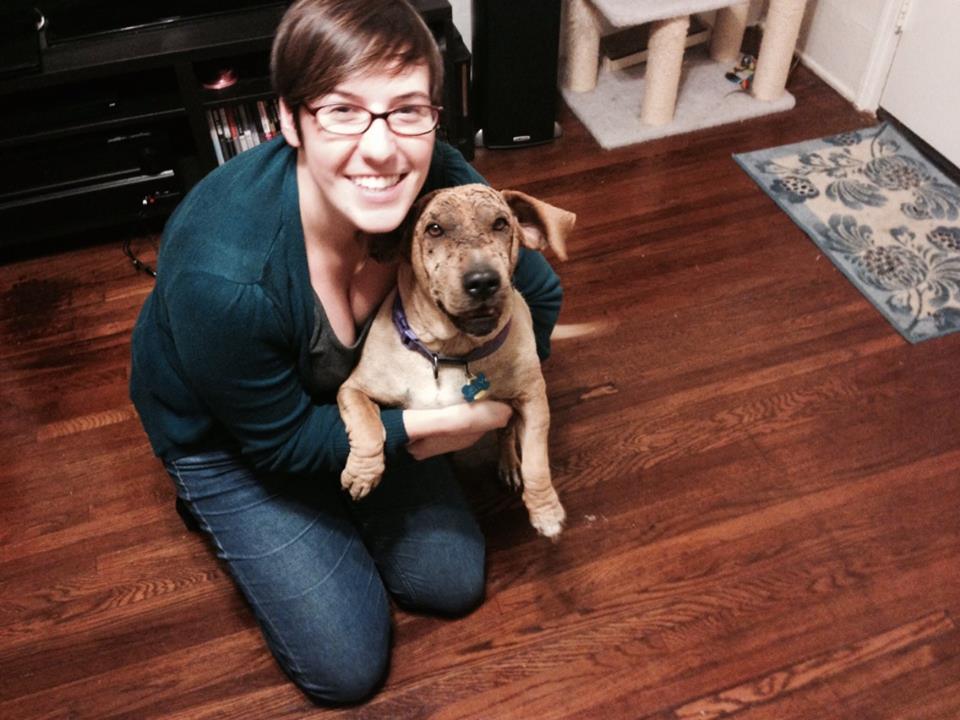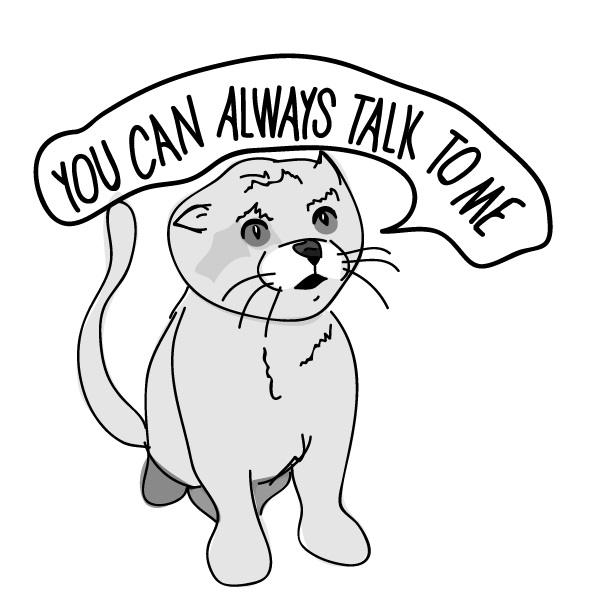The Long Road to Consent: An Interview with Helen Wildfell
 Helen Wildfell came to us with a proposal for a zine about her experiences learning to build healthy relationships. We liked it so much that we asked her to turn it into a book. The result is Consensuality: Navigating Feminism, Gender, and Boundaries Towards Loving Relationships. With the help of a handful of brave coadventurers and Microcosm designer Meggyn Pomerleau’s illustrations and interactive activities, Consensuality is like a friend friend who sticks with you through the toughest times and helps you always move on to do things better.
Helen Wildfell came to us with a proposal for a zine about her experiences learning to build healthy relationships. We liked it so much that we asked her to turn it into a book. The result is Consensuality: Navigating Feminism, Gender, and Boundaries Towards Loving Relationships. With the help of a handful of brave coadventurers and Microcosm designer Meggyn Pomerleau’s illustrations and interactive activities, Consensuality is like a friend friend who sticks with you through the toughest times and helps you always move on to do things better.
Consensuality is a very personal book, in which you and others share some pretty hard-learned lessons and brave levels of self-examination. Did you know the major themes of the book before you started writing, or did the insights come out in the writing process?
I initially wrote about the topics in Consensuality out of emotional necessity. I was at a place in my life where I needed to reexamine how I approached relationships, and writing was my method for sorting through my own gender and sexuality. As I continued to write, I began to notice that certain emotional themes kept reappearing. For instance, the three R’s in the book (Regretful, Resentful, and Respectful) emerged through the simple act of writing down my feelings.
There were still many more insights to be gained after I began turning Consensuality into a full-length book. I focused more on uniting the themes into a cohesive idea of Consensuality, which eventually led me to realize that consent is more than a concept, it’s a long journey with changing themes. Each time I reread the book, sit down to write something new, or just interact with my partner, I discover additional ideas about consent and how it works within relationships.
Your book is different than most other books about relationships; you don’t offer rules or formulas for having a healthy relationship but share examples instead. Can you talk about why you chose to write this way?
I think many “self-help” books reinforce the idea that there is one way to live life. Acting as an authority on a topic and creating rules for obtaining success can make the ideas in a book appear as some sort of absolute truth. But as convenient as it would be to have a formula for healthy relationships, examples of personal experiences provide more insight into the intricacies of human bonds. It was very important to me that my voice be read as one perspective in the larger conversation about healthy relationships. Including contributors as co-adventurers was also a crucial part of providing a fuller picture of consent. The other authors involved in the book offer viewpoints that extend beyond the limits of my individual experience.
 The book comes out July 14th. How do you think readers will respond? How do you hope the book will be taken?I imagine that it will be easy for some readers to relate to the experiences and lessons in Consensuality, while other readers may find blind spots in how I wrote about consent. There’s so much to explore when you’re interacting with another person; I know that we are only scratching the surface in Consensuality. Regardless of whether they like or dislike, agree or disagree, with what I wrote in the book, I want the readers to feel empowered to start talking about these issues in their relationships. There are a lot of ideas about consent out there, some good and some bad, but I’m very excited that people are considering consent at a societal level with policy changes and at a personal level with stories about intimate interactions. As people read more about gender, sexuality, and boundaries, I hope they’ll begin to feel more comfortable discussing consent with their sexual partners.
The book comes out July 14th. How do you think readers will respond? How do you hope the book will be taken?I imagine that it will be easy for some readers to relate to the experiences and lessons in Consensuality, while other readers may find blind spots in how I wrote about consent. There’s so much to explore when you’re interacting with another person; I know that we are only scratching the surface in Consensuality. Regardless of whether they like or dislike, agree or disagree, with what I wrote in the book, I want the readers to feel empowered to start talking about these issues in their relationships. There are a lot of ideas about consent out there, some good and some bad, but I’m very excited that people are considering consent at a societal level with policy changes and at a personal level with stories about intimate interactions. As people read more about gender, sexuality, and boundaries, I hope they’ll begin to feel more comfortable discussing consent with their sexual partners.
What’s next for you?
The plan is to continue reading, writing, and talking about equality in relationships. I’d like for my next project to start from a personal place, like Consensuality did, and lately I’ve been thinking a lot about how money affects relationships. It was a major issue for my parents, even years after their divorce, and while my partner and I generally have healthy communication habits, the intermingling of our finances is new territory for us. It’s easy to see money issues as something that only irresponsible people face, but the reality is that as long as money is unfairly distributed, it will challenge equality in all relationships. I want to start exploring how individuals can challenge the effects of economic inequality in their personal relationships.
This interview with Helen Wildfell, author of Consensuality, is the latest in our series of author interviews. Our last author interview was with Crate Digger author Bob Suren. The next interview is with Teenage Rebels author Dawson Barrett.